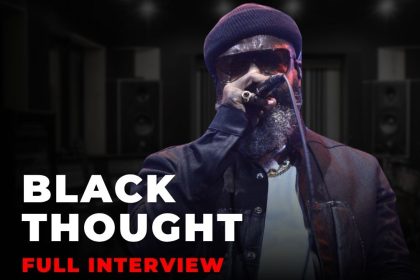When Muni Long posted her Boosie Badazz-inspired video on December 26, 2024, she didn’t just create another social media moment – she ignited a vital conversation about cultural ownership in music. The Grammy-winning artist behind “Hrs and Hrs” made her position crystal clear: she won’t write soulful music for non-Black artists, period. The video, which quickly went viral across multiple platforms, demonstrated how humor could be used to address serious industry issues while maintaining authenticity.
From hitmaker to boundary setter
Before becoming Muni Long, Priscilla Renea built an impressive career writing for some of music’s biggest names. After her 2009 debut album Jukebox, she penned hits for Rihanna and Kelly Clarkson. But it was her 2021 breakthrough “Hrs and Hrs” that truly showcased her artistry, earning her both Billboard success and a Grammy for Best R&B Performance.
Her journey from behind-the-scenes songwriter to acclaimed solo artist gives her a unique perspective on the industry’s inner workings. This experience has shaped her understanding of how cultural elements are often commodified and separated from their roots, leading to her current stance on protecting the authenticity of soul music.
When creativity meets conviction
Long’s stance comes from years of industry experience and understanding the deeper implications of cultural expression in music. Her humorous yet pointed Instagram video borrowed from rapper Boosie Badazz’s famous rejection style, but the message underneath was serious: authentic soul music comes from lived experience.
This position reflects a growing movement among Black artists to reclaim and protect their cultural heritage in the music industry. By taking this stand at the height of her success, Long demonstrates that commercial viability doesn’t have to come at the cost of cultural integrity.
The industry pressure cooker
Music executives often push artists to broaden their appeal, sometimes at the cost of authenticity. Long’s refusal to write soulful music for non-Black artists challenges this practice, highlighting the ongoing tension between commercial success and cultural integrity in the music industry.
The pressure to conform to mainstream expectations has historically led many artists to compromise their artistic vision. Long’s stance represents a shift in this dynamic, showing that artists can maintain both their principles and their success.
A movement bigger than music
The response to Long’s declaration reveals widespread support for artists protecting their cultural heritage. Comments like “They want our rhythm but hate our blues” echo historical patterns of cultural appropriation in the music industry, where Black artists’ contributions are often commodified without proper recognition.
These reactions highlight how Long’s individual choice resonates with a larger community concerned about preserving cultural authenticity in music. Her decision speaks to decades of discussion about ownership, attribution, and respect in the industry.
Standing firm in her truth
Long’s decision represents more than personal preference – it’s a statement about creative autonomy and cultural respect. By choosing who she writes for, she maintains control over how her artistry contributes to the musical landscape. This stance has garnered support from both fans and fellow artists who recognize the importance of protecting cultural expressions in music.
The ripple effect in the industry
Her stance encourages other artists to consider their role in preserving musical traditions. This conversation extends beyond individual choices to broader questions about responsibility and representation in the industry. Young artists looking to enter the industry now have an example of how to maintain their principles while achieving success.
Creating space for authentic voices
The artist’s commitment to authenticity challenges industry norms that often prioritize marketability over cultural significance. Her success proves that staying true to one’s artistic vision can coexist with commercial achievement. This creates opportunities for more diverse and authentic expressions in mainstream music.
The power of saying no
Long’s refusal demonstrates how setting boundaries can actually strengthen an artist’s position in the industry. Her Grammy win and chart success give weight to her creative choices, showing that compromise isn’t necessary for success. This empowers other artists to make similar choices in protecting their artistic integrity.
Impact on future generations
As the music industry continues to evolve, Long’s stance may influence how future artists approach questions of cultural authenticity and creative control. Her example shows that success doesn’t require sacrificing principles or cultural heritage.
Changing industry dynamics
Long’s position has sparked important discussions about how the music industry approaches cultural elements in songwriting and production. These conversations could lead to more thoughtful consideration of cultural attribution and respect in music creation.
The broader cultural conversation
This moment represents more than just one artist’s decision – it’s part of a larger movement toward recognizing and respecting the cultural origins of different musical styles. Long’s courage in taking this stand, especially at the height of her success, sets an important precedent for future generations of artists.
Looking toward the future
The impact of Long’s stance extends beyond the immediate conversation about soul music. It raises important questions about how the industry will adapt to growing demands for cultural respect and authenticity. Her success while maintaining these boundaries suggests a possible shift in how the industry approaches cultural elements in music.
A new model for success
Long’s approach demonstrates that commercial success and cultural integrity aren’t mutually exclusive. Her ability to maintain both suggests a new model for artists navigating the complex relationships between authenticity, commerce, and culture in the music industry.
As conversations about cultural appropriation and authenticity continue to shape the music industry, Long’s position serves as a reminder that true artistry comes from genuine experience and understanding. Her success proves that staying true to one’s principles can coexist with commercial achievement, potentially changing how the industry approaches cultural elements in music creation.













